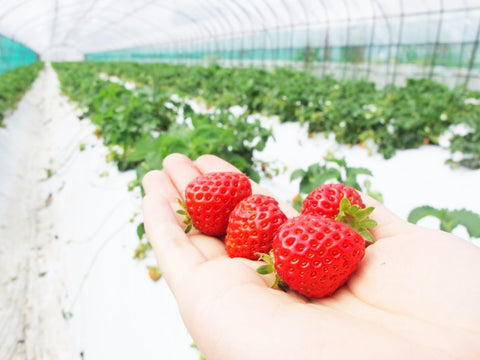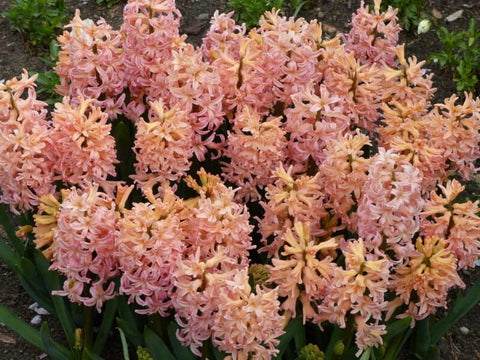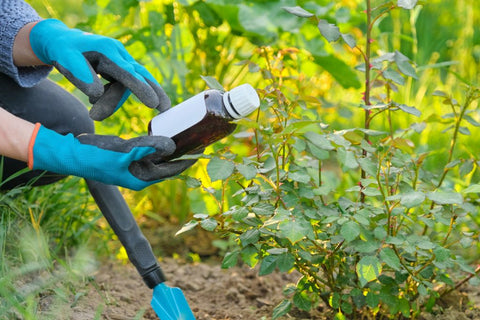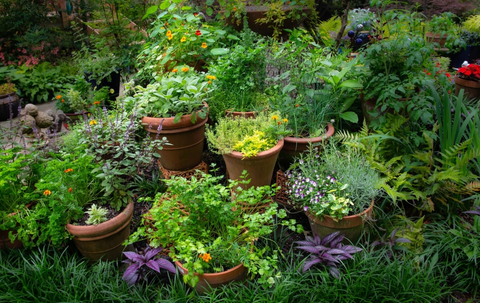In a world filled with constant noise, demands, and distractions, the concept of finding solace and relief from stress has become increasingly elusive. Many individuals are seeking natural and effective ways to counteract the pressures of modern life, and one such solution is horticultural therapy or simply, gardening. Gardening, whether in your backyard, a community garden, or even on a windowsill, offers a multitude of benefits for your mental and emotional well-being. In this in-depth exploration, we'll delve into the healing power of horticulture, unveiling the ways in which gardening can be a powerful tool for stress relief and overall mental health.The following content also has some reference value for raised garden beds.

The Therapeutic Garden: A Brief Overview
Horticultural therapy is a field that recognizes and harnesses the therapeutic benefits of interacting with plants and nature. It's a practice that dates back to ancient civilizations and has been adopted worldwide to improve the mental and emotional health of individuals dealing with various challenges, including stress, anxiety, depression, and trauma.
The Stress Epidemic: Why We Need Stress Relief
Stress has become an all-too-common companion in modern life. The demands of work, family, social obligations, and the constant bombardment of information through digital devices have created a society where chronic stress is the norm rather than the exception. Prolonged exposure to stress can lead to serious physical and mental health issues, including high blood pressure, heart disease, anxiety disorders, and depression.

The Science of Gardening and Stress Relief
Nature's Calming Effect
The natural environment has a remarkable ability to soothe the human psyche. Exposure to green spaces and plant life has been shown to reduce cortisol levels, the hormone associated with stress, and promote the release of endorphins, the body's natural mood enhancers. A study published in the Journal of Environmental Psychology found that simply looking at a garden can elicit feelings of tranquility and relief from stress.
Mindful Engagement
Gardening requires focused attention and presence in the moment, qualities akin to mindfulness meditation. When you immerse yourself in gardening tasks like planting, weeding, or tending to plants, you naturally shift your focus away from stressors and negative thoughts. This mental redirection fosters a sense of tranquility and relaxation.
Physical Activity
Engaging in physical activities, such as digging, raking, and planting, not only contributes to a healthy body but also stimulates the release of endorphins. Exercise is a well-established stress reducer, and gardening provides a gentle and enjoyable form of physical activity suitable for individuals of all fitness levels.
Connection and Social Support
Many communities have established communal gardens, which offer opportunities for social interaction and support. Engaging in gardening alongside others can foster a sense of belonging, reduce feelings of isolation, and provide a valuable support network during times of stress.
Gardening Techniques for Stress Relief

Creating a Mindful Garden
Design your garden with mindfulness in mind. Include a comfortable seating area where you can sit, reflect, and simply enjoy the sights and sounds of your garden. Incorporate calming elements like flowing water, wind chimes, and fragrant plants like lavender or jasmine.
Gardening in Small Spaces
Even if you have limited outdoor space, you can still experience the benefits of gardening. Container gardening, vertical gardens, and indoor houseplants are excellent options for apartment dwellers or those with small yards.
Herb Gardening
Growing your herbs not only provides fresh ingredients for your culinary creations but also offers sensory pleasure and stress relief. Herbs like basil, rosemary, and mint emit delightful scents that can uplift your mood.
Therapeutic Plant Selection
Choose plants that resonate with you on a sensory level. Consider the colors, textures, and scents that bring you joy and relaxation. Lavender, chamomile, and lemon balm are known for their calming properties.
Gardening for Specific Stressors

Work-Related Stress
If your stress primarily stems from work, create a workspace garden. Incorporate potted plants, succulents, or a small indoor herb garden into your office or cubicle. These living companions can help reduce workplace stress and improve productivity.
Parenting Stress
Parents often experience high levels of stress. Involving your children in gardening activities can be a bonding experience that provides stress relief for both parents and kids. Teach them about plant care, and watch as they marvel at the growth and transformation of plants.
Caregiver Stress
Caring for a loved one can be emotionally draining. Having a garden space where you can retreat and rejuvenate is essential for caregivers. Consider creating a meditation garden with soothing plants and a comfortable seating area.
Community Gardens: A Shared Oasis
Many urban areas offer community gardens where individuals can rent a plot to cultivate their plants. These gardens provide not only a space for personal stress relief but also opportunities for social engagement and connection with fellow gardeners. Community gardens foster a sense of belonging and camaraderie, enhancing their therapeutic value.
Bringing the Benefits of Gardening to All Ages
Gardening is a universally accessible therapeutic activity that can benefit people of all ages. It's especially valuable for seniors, as it provides an opportunity for physical activity, mental stimulation, and a sense of purpose. For children, gardening offers a chance to learn about nature, responsibility, and the joy of nurturing living things. Encourage intergenerational gardening to promote family bonding and the sharing of horticultural knowledge across generations.

Conclusion: Cultivating Inner Peace
In the quest for stress relief, many individuals overlook the simple yet profound benefits of gardening. It's a practice that connects us to nature, engages our senses, and promotes mindfulness—all essential elements for reducing stress and enhancing mental well-being. Whether you have acres of land or just a windowsill, there's a garden waiting for you to tend to it. As you dig, plant, and nurture your green companions, you may discover not only the healing power of horticulture but also a deeper connection to yourself and the world around you. So, grab your trowel, put on your gardening gloves, and start cultivating your inner peace—one plant at a time.









